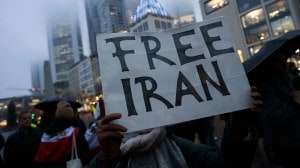Dateline Ground Zero
India may restate its no-first-use nuclear doctrine. The General may proclaim the insanity of even contemplating a nuclear war. But the US a...

India may restate its no-first-use nuclear doctrine. The General may proclaim the insanity of even contemplating a nuclear war. But the US and British media aren8217;t listening.
Anxious dispatches from correspondents in New Delhi and Islamabad have painted the two nuclear rivals sweltering in full battle gear, itching to begin a war they do not understand, much less control.
There is incredulity that life dares to go on as usual in the subcontinent. Britain8217;s FINANCIAL TIMES marvelled that there are no signs of panic buying or queues at petrol stations, most residents are more preoccupied with acute water shortage and more than 50 of businesses expect demand and investment to grow in the CII8217;s just-released quarterly survey of domestic business confidence.
From Islamabad, the NEW YORK TIMES exclaimed that almost nobody is talking of nuclear war. 8216;8216;Not the schoolmaster, not the cook, not the real estate agent, not the librarian8230;8217;8217;
The western media has a diagnosis 8212; it8217;s part Nuclear Illiteracy, part Nuclear Denial. And, guess what, it8217;s infectious. American and British papers reported concern that thousands of US and British citizens are not heeding advisories to leave India.
Same difference
Western commentators argue that 8216;South Asia8217;s hair trigger8217; is different from the US-USSR nuclear rivalry. The 8216;8216;internal and mutual constraints8217;8217; that prevented nuclear weapons from being used during the Cold War, the NYT pointed out, are 8216;8216;conspicuously absent8217;8217; on the subcontinent.
Dubbing India8217;s nuclear doctrine as 8216;fuzzy8217;, NEWSWEEK warned that the 8216;unknowns8217; make this conflict truly the most dangerous in the world.
Kashmir on their mind
On days when nuclear forebodings loom not-so large in the western media, they talk of cross-border terrorism and, increasingly, Kashmir.
So entwined is the issue of cross-border terrorism with America8217;s War on Terror that near universal consensus has been achieved on this: General Musharraf has failed to honour his January 12 pledges.
Pakistan has trained, equipped and inserted terrorists in Kashmir. The onus is on Musharraf to move South Asia back from the brink.
The US media is beginning to look beyond defusing tensions between India and Pakistan to Kashmir. Its reference points are conflicts the West is far more familiar with: on the eve of Richard Armitage8217;s arrival in India, THE WASHINGTON POST wrote that the issue of governance in Kashmir has been 8216;obscured8217; and 8216;distorted8217; by the vocabulary of 9/11.
It said the diplomatic skill that is going into pulling the nuclear rivals apart must also focus on Kashmir. Because, just as 8216;Russian ruled Chechnya8217; or 8216;Israeli occupied West Bank8217;, it needs 8216;8216;a deeper political solution8217;8217;.
The British media was raising the pitch on Kashmir long before the US media came to it. On the eve of the Armitage visit, the FT was ready with a solution: 8216;8216;New Delhi should consider granting maximum political autonomy to Kashmir while seeking to turn the Line of Control into an internationally recognised border8230; Pakistan must support any political settlement that the Kashmiri people can successfully negotiate with New Delhi.8217;8217;
The DAILY TELEGRAPH echoed the widely-promoted position that: 8216;8216;As with the Israelis and Palestinians, the two sides seem unable to lower the temperature on their own. And as in the Near East, it is America that provides the best hope of mediation.8217;8217;
PS: From THE ECONOMIST: 8216;8216;What is needed now is a sequence of steps to dance Pakistan and India away from the brink without allowing one to trip the other up 8230; Mr Armitage can help with the choreography.8217;8217; How language can sanitise.
TIME read out imagined scribbles from the reporter8217;s notebook in Kashmir: 8216;8216;Rebels today slaughtered 31 women and children in a savage attack beside a babbling brook in a meadow of wild irises, daisies, and tiny pink anemones8217;8217;.
On the day the DAILY TELEGRAPH announced: 8216;India plans war within two weeks8217;, the FT headline was: 8216;Tensions over India-Pakistan border recede8217;.
- 01
- 02
- 03
- 04
- 05































